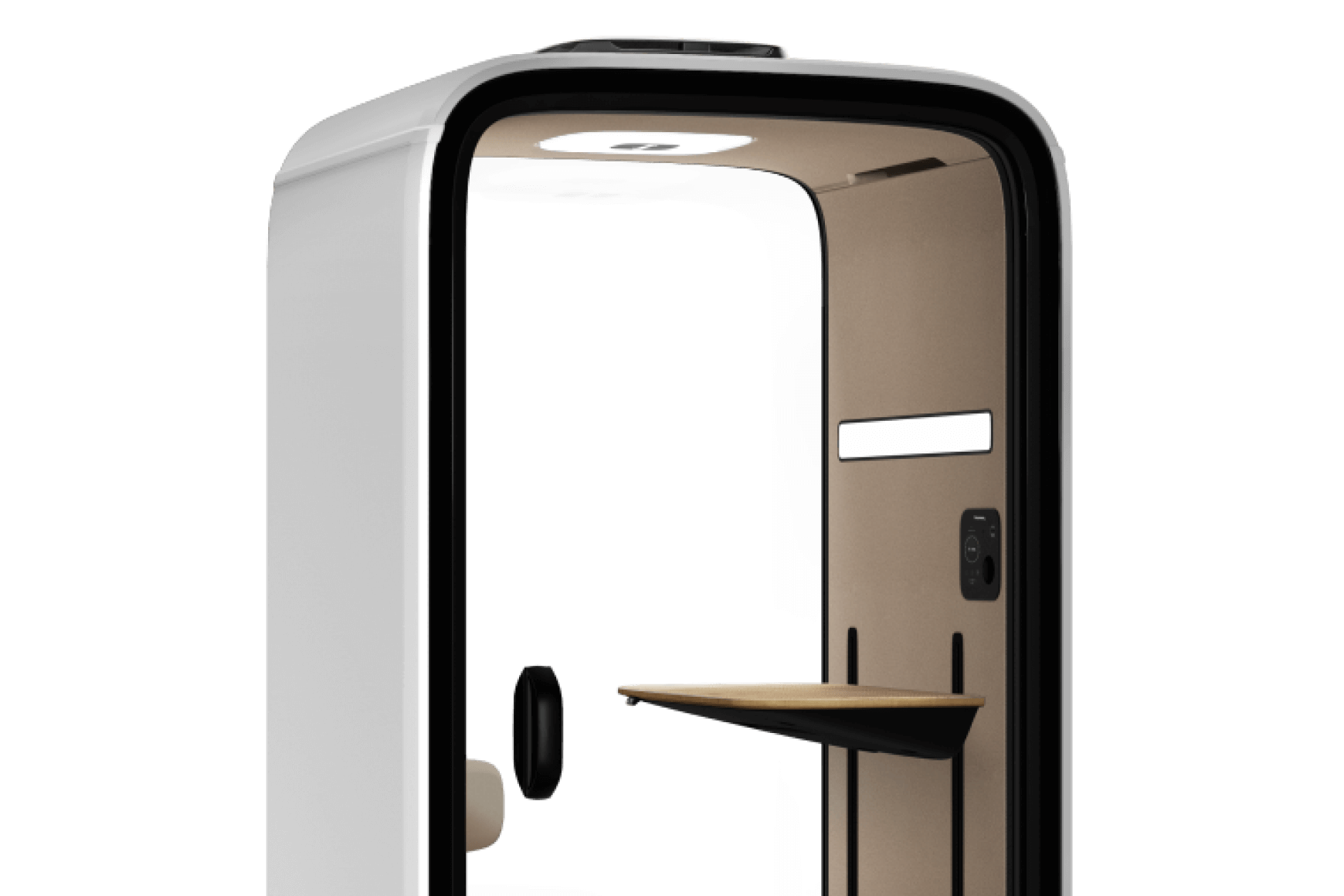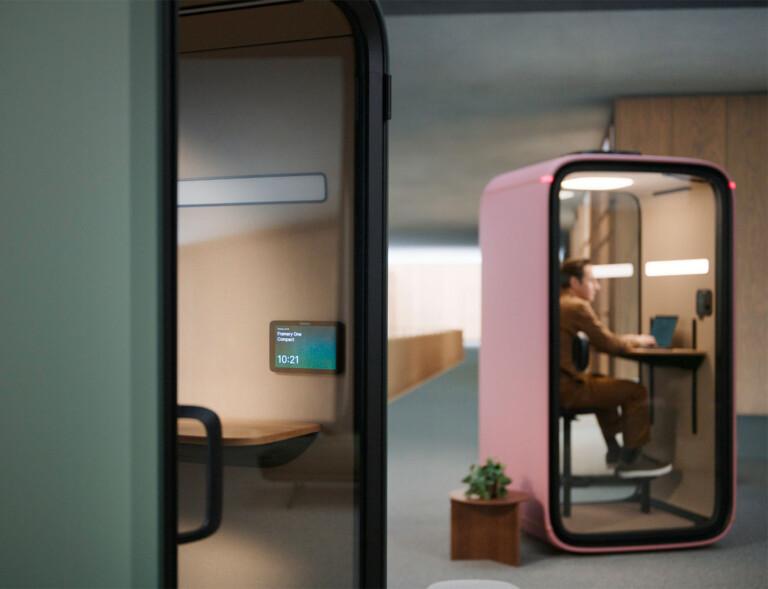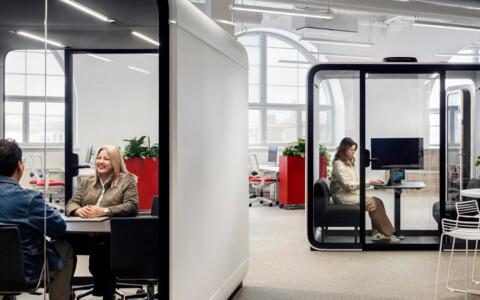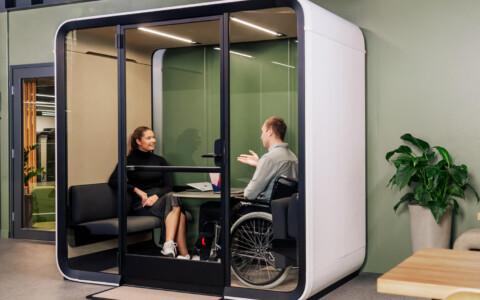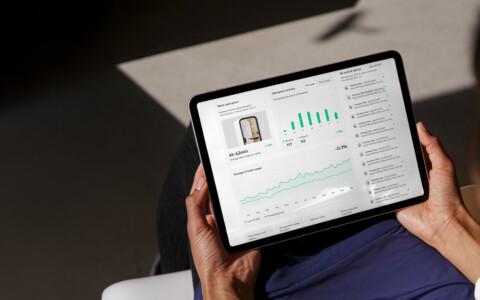Within a single office space, employees spend their workday engaged in drastically different types of tasks, some jumping from one meeting to another with clients while others are absorbed in deep work designing digital products or writing captivating sales pitches. Yet, many knowledge workers share the same open office space despite their radically different work assignments.
This is why employers should invest in creating a flexible office space that caters to various work-related tasks. Flexibility does not benefit only the people working in an office, but can also be more cost-effective and profitable for the business.
Key highlights
- The workplace should be smart, adaptable, and equipped for a number of functions in order to create a flexible office space that promotes employee productivity and distraction-free work.
- Modern knowledge workers expect hybrid work capabilities. As a result, their workplace should also provide diverse spaces for remote meetings and flexible seating arrangements.
- Investing in office space flexibility is not only beneficial for the employees but for the company as a whole due to higher employee satisfaction, productivity and optimized use of office real estate.
A flexible workplace promotes in-person and remote work
A flexible office space promotes different work arrangements in two ways. Firstly, it enables flexible hybrid work as employees switch between remote and in-person work. Second, flexibility in office space design means that people at the office can choose to work in spaces and areas intended for different types of work.
A flexible space for hybrid work
As a result of the widespread adoption of remote work brought about by the pandemic, many companies have found their offices ill-equipped for flexible hybrid work. Designing the office space for hybrid work is more than just a nice-to-have for the employees. Instead, as 2023 data by Gallup shows, US companies risk their remote-capable employees leaving if they are not allowed remote flexibility.
Companies can accommodate their hybrid employees with flexible seating arrangements and enough private meeting rooms throughout the office.
Meanwhile, survey data by Leesman indicates that employees prefer to carry out certain work tasks at home, such as attending pre-planned meetings or engaging in individual work requiring a high level of focus. The same data shows how the importance of videoconferencing has grown steadily over the past decade and is soon projected to surpass the telephone as the primary method of communication.
Therefore, companies must ensure their offices are equipped with the right videoconferencing technology to accommodate hybrid employees and enable meetings with one or more participants attending remotely. Explore Framery’s custom-designed videoconferencing spaces with Logitech technology.
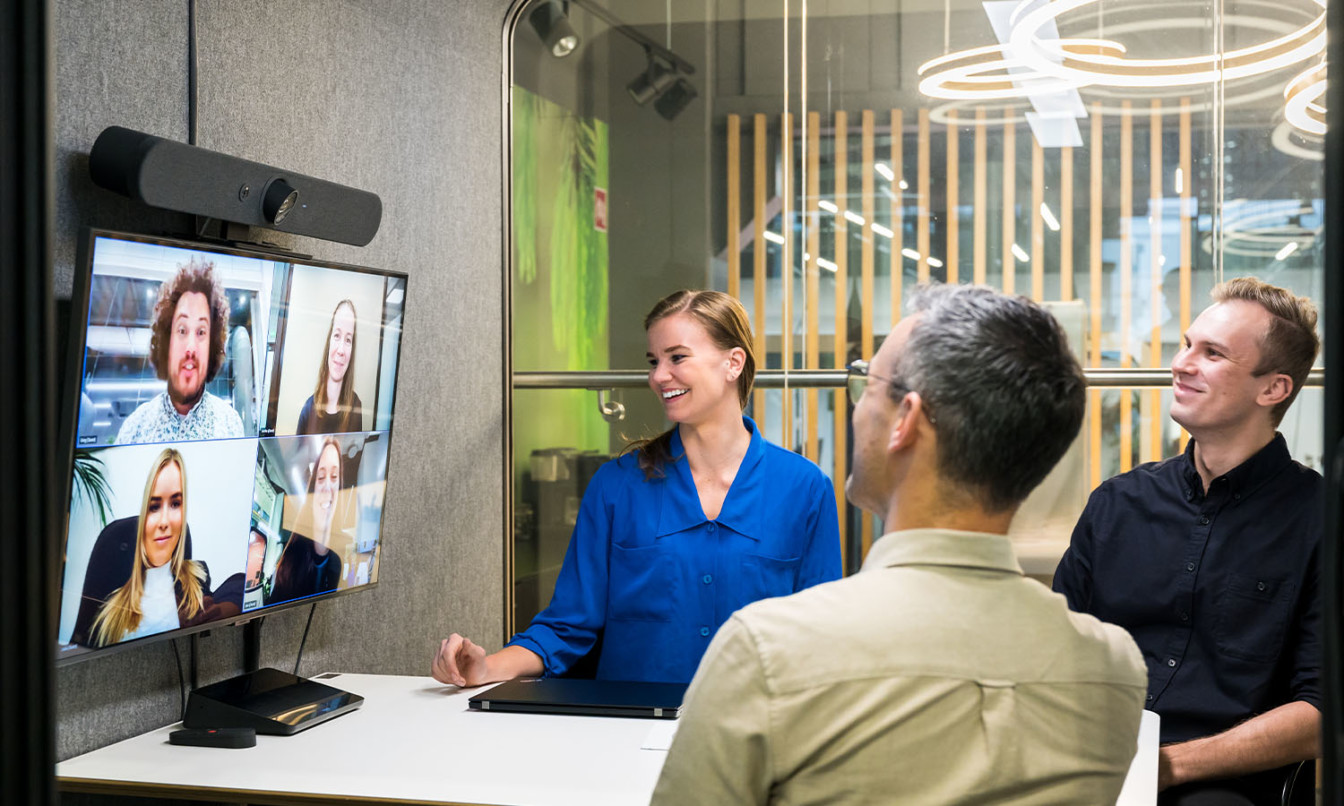
Flexible office space design for in-person work
As most knowledge workers can tell from their experience, open offices can at times be noisy environments where deep focus is a rare luxury. You can encourage employees to work without disturbing others by dedicating different office areas to specific tasks.
- Focused work in private, single-person office pods.
- Collaboration in smaller soundproof booths that prevent sounds of heated discussion from disturbing others.
- Meetings in person or with remote participants.
- Relaxation and breaks during which office workers can focus on non-work-related tasks or engage in watercooler talk.
Identify over and underutilized areas of the office with insightful office analytics and remove the guesswork from decision-making. You can connect Framery smart pods and booths with the workplace calendar and make them bookable whenever and wherever. Framery pods are perfect for flexible workspace arrangements thanks to their industry-leading soundproofing with a speech level reduction of 30 dB.
Explore all Framery pods
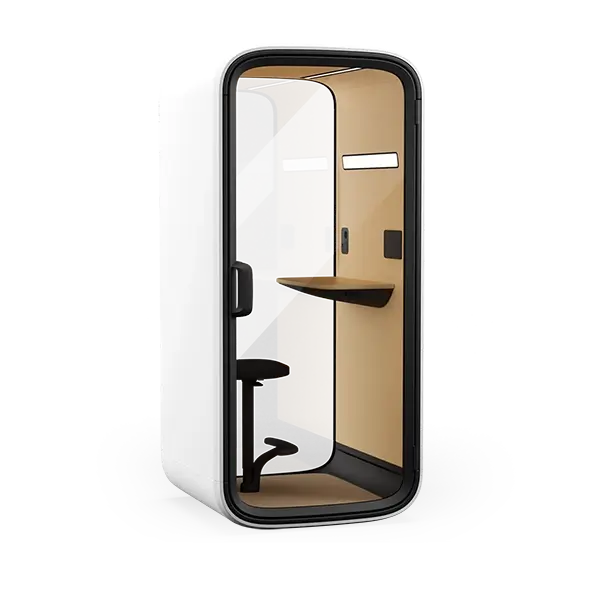
Benefits of flexible office space design
- Improved employee well-being: One of the most detrimental flaws of a poorly designed office is the level of unwanted noise that permeates the workplace. Yet, not all office noise is created equal. The most harmful type of office noise is audible speech, as long as it is loud enough to be understood. Companies can reduce the effects of harmful noise with enough private and soundproofed meeting spaces or with sound masking technology that reduces the intelligibility of distracting speech.
- Enhanced productivity: The inability to work effectively and without distractions results in poor performance and, as a result, lower productivity. Therefore, companies should promote flexible office work not only for their employees’ well-being but also for the bottom line.
- Efficient use of real estate: Unlike traditional offices, flexible workspaces combine modular and adjustable office solutions, such as pods and booths, with smart office technology for easy data collection. These include occupancy sensors and IoT devices, for instance. By measuring the right things throughout the workplace, companies can optimize the use of office space and minimize underused areas.
- Scalability: When the office layout is not set in stone by fixed walls and permanent meeting rooms, companies can respond to changes in personnel, for example, by bringing in more small meeting booths and downsize more efficiently.
To read more about designing the office with Framery smart pods and booths, read our Pod Placement Guide for more.
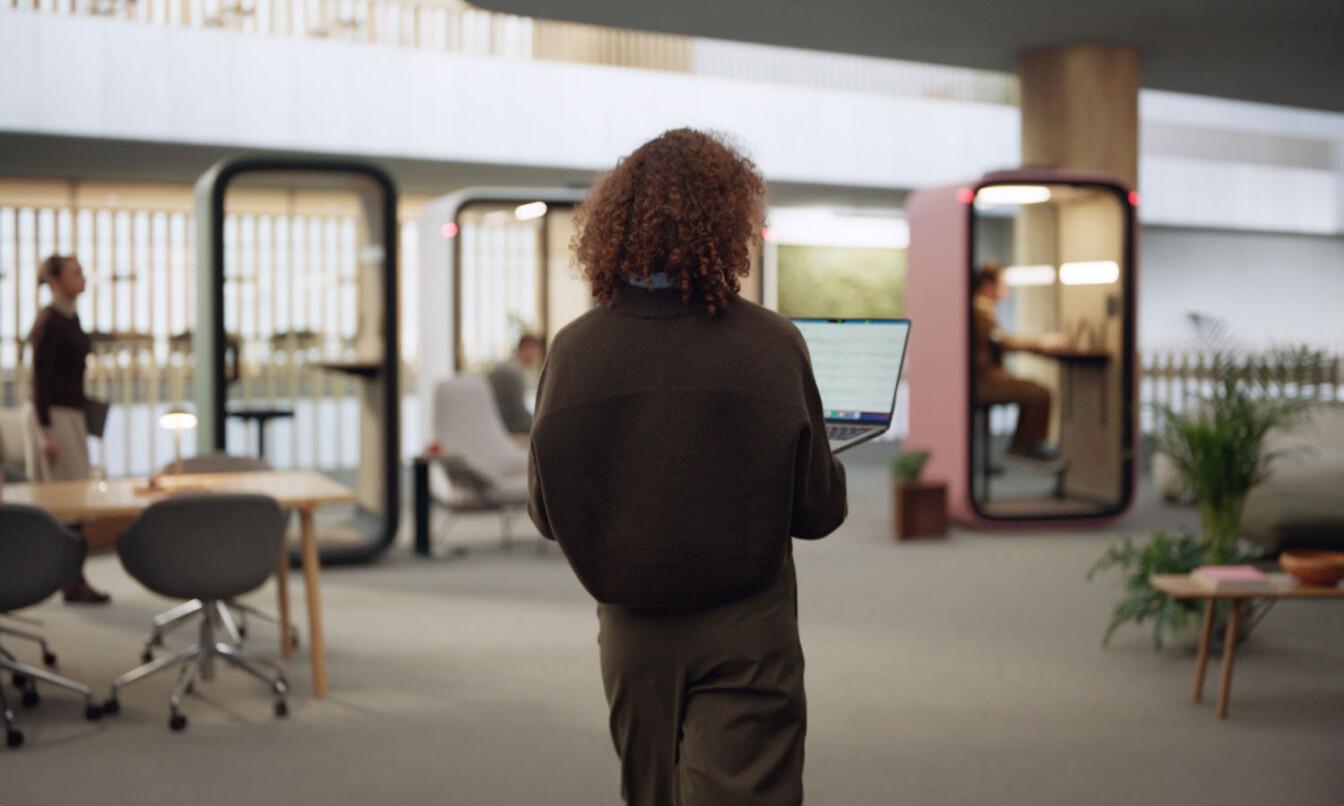
Let smart technology drive decision-making
As companies struggle to keep up with the trends of modern office work, designing a workplace that caters to different employees’ needs and can adapt to changes is no easy task. Luckily, companies can remove the guesswork from changes to the office space with actionable data that points in the right direction.
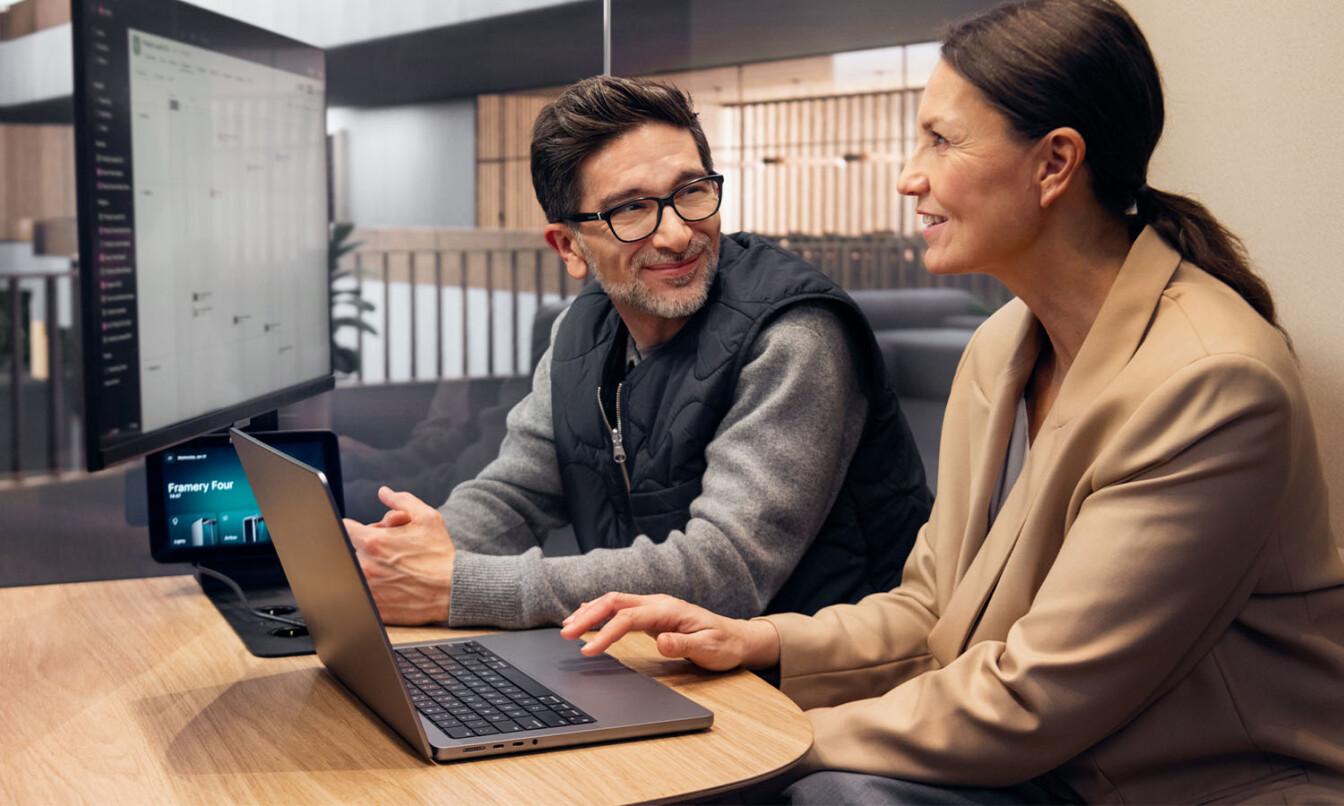
Smart office technology, such as occupancy sensors and integrated meeting room booking systems, can help companies identify which meeting rooms and other office areas are always at full capacity and remain unused. This way, employers can ensure that office workers have available meeting spaces and that the company’s real estate is used effectively.
Framery Connect makes your office data easy to collect and decipher so you can base your decisions on actionable data. Connect Framery office pods and meeting rooms to the workplace calendar system, making them bookable straight from the calendar. And with the Framery Connect Sensor™, you can gather data from every meeting room and office area.
Explore Framery Connect Sensor™
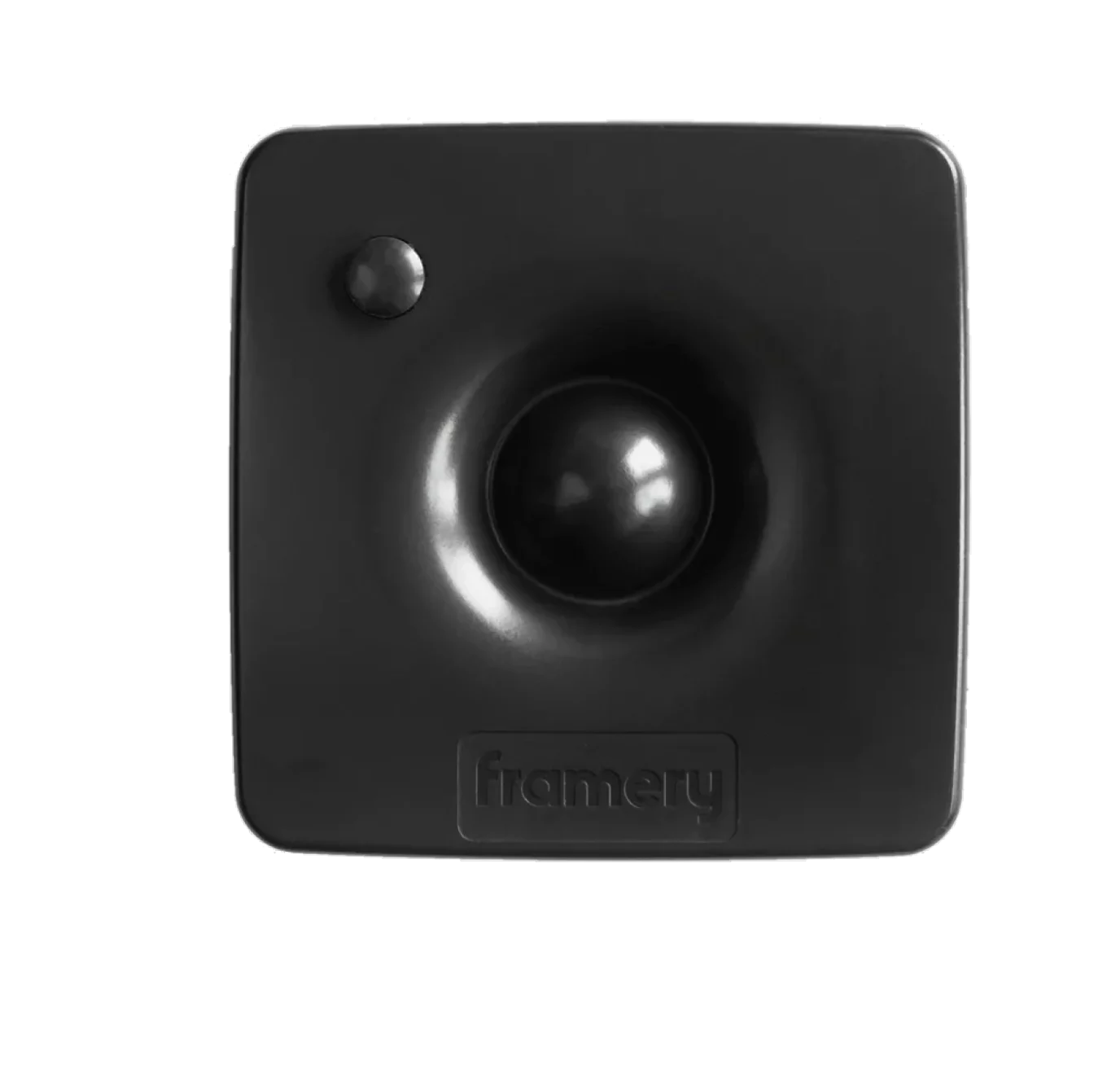
Flexible offices are more sustainable offices
With the rising demand for office areas dedicated to virtual collaboration and communication, the pressure to provide videoconferencing technology and allow hybrid work is growing.
By promoting flexibility with portable and modular office solutions, Framery smart pods help companies reconfigure their office without energy-consuming and labor-intensive renovation projects. With different-sized office pods and booths, you can occupy larger areas with smaller meeting rooms or single-person office telephone booths. This removes the need to reconfigure the office space more thoroughly.
Not only are Framery smart pods better for the environment, but they are also a more cost-effective alternative to building new meeting rooms in the office building. Our study with CBRE Finland found that by choosing office pods over constructing new meeting rooms, the industry could save over 30 billion dollars in the USA alone between 2023 and 2030.
FAQ about flexible office spaces
What does a flexible workspace look like?
Instead of describing a specific workplace design, a flexible workspace enables diverse tasks and workplace arrangements, including in-person and hybrid work. Flexible spaces do this by meeting various work-related needs, for example, with a combination of soundproof office pods, larger meeting booths, and private offices. The workplace should adjust to changes in personnel and the business as a whole to match the employees’ needs and the company’s goals.
How does a flexible office space differ from traditional offices?
Unlike traditional offices, flexible workspaces are adaptable without major renovations while incorporating smart technology and modular office furniture, such as internet-connected office pods. The office solutions in a flexible workspace can support employees’ everyday work and concentration with sound masking technology and additional soundproofing.
Get started today
Design your own
Customize your pod and make it your own with our pod configurator.
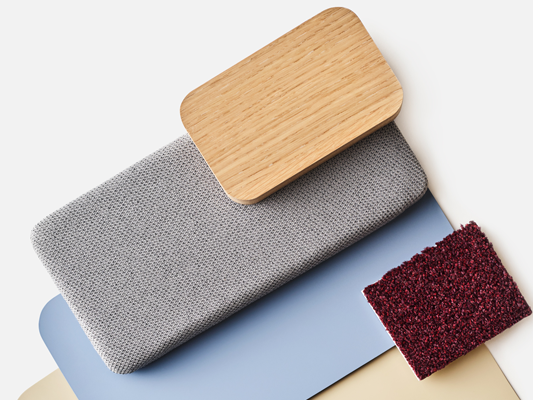
Get a quote
Find your nearest representative to hear about pricing and get a quote for your project.
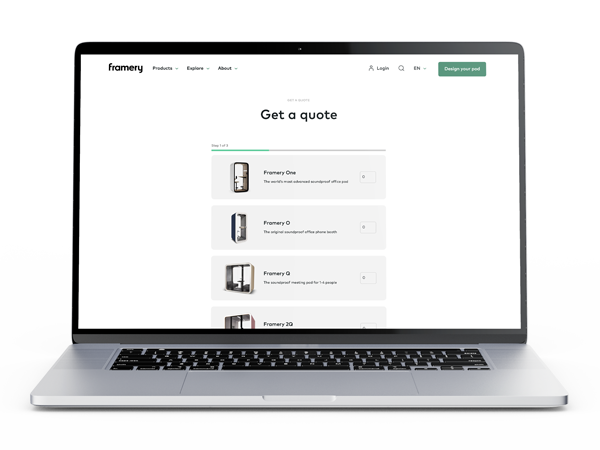
Try a pod
Visit one of our global showrooms to try any of our Framery pods for yourself.
